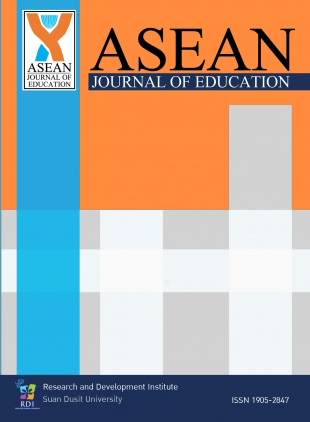Proposing Methods of Support by IR for Japanese National Universities on the Mid-Term Plan Related to Globalization
Keywords:
Institutional Research, Japanese National University, Mid-Term Plan, GlobalizationAbstract
Japanese national universities should promote their globalization plans. However, there are some inappropriate management plans. While institutional research (“IR”) is expected to help the executives in developing mid-term plans, there are no methods to contribute it by IR at present. In all Japanese national university corporations, the mid-term plans are developed in order to achieve their mid-term objectives. 56 mid-term plans are related to globalization among the plans developed by all universities adopted in Top Global University Project in Japan. Some mid-term plans don't contain essential elements which are inputs, activities, outputs, and outcomes. As the support of IR, we can show the executives processes based on data in order to develop mid-term plans based on logic model for these plans. On the other hand, the mid-term plans with no or inappropriate numerical targets exist. The other plans with inappropriate numerical targets may be unachievable. Through IR, we should provide the executive with numerical data which can indicate present and future circumstances. In our work, we will not only clarify the problems of the management plans but also study how we can support these plans concretely through IR.
References
Funamori, M. (2016). The Status Quo and Issues of Institutional Research in Japanese Universities—IR Offices at a Crossroads in Universities without Regular University Management. Information Engineering Express, 2(1), 23-32.
JSPS. (2014). The Adoption Universities of Top Global University Project. Retrieved from https://www.jsps.go. jp/j-sgu/h26_kekka_saitaku.html
Kominato, T. (2016). How to Create Logic Model. Report of University Evaluation Beginner Seminar “For Everyone Who is in Charge of Evaluation for the First Time”, 56-65
MEXT. (2008). A Plan For 300,000 Exchange Students. Retrieved from http://www.mext.go.jp/b_menu/houdou/20/07/08080109.htm
MEXT. (2014). Top Global University. Retrieved from https://tgu.mext.go.jp/en/
MEXT. (2015). Mid-term objectives and mid-term plans at each national university in 2015. Retrieved from http://www.mext.go.jp/a_menu/koutou/houjin/1356357.htm
Minamoto, T., Nishigori D., & Suetsugu T. (2016). Utilizing Institutional Research to Influence Improvement of University Staff Activities and to Make Plans for the
University: A Case Study of Saga University. Information Engineering Express, 2(1), 77-86.
JASSO. (2017). Survey of overseas student. Retrieved from http://www.jasso.go.jp/about/statistics/intl_student_e/
NIAD-UE. (2011). Glossary of Quality Assurance in Japanese Higher Education. Tokyo: National Institution for Academic Degrees and University Evaluation.
Sakano, T. (2012). Viewpoint and method for evaluating plan. In Hattori, Eiji., Kudo, Asahiro., Ninomiya, Shinji. & Ishikawa, Izumi. (Eds.), Handbook for developing up social educational plan (pp.6-23). National Institute for Educational Policy Research, Japan.
Saupe, J. L. (1990). Function of Institutional Research, 2nd Edition. FL: Association for Institutional Research.
Takata, E. (2017). Proposing Methods of Support by IR for Japanese National Universities on the Mid-Term Plan Related to Education. Proceeding of Japan Society of Educational Information, 33, 192-195.
Tataka, E., & Mori, M. (2014). The present condition and the subject of management capability among administrative staff of national universities. Journal of the Liberal and General Education Society of Japan, 36(2), 96-102.
Yamamoto, K. (2016). Classify Internal Quality Assurance and Index for Evaluation by Using Logic Model in Meiji University. Report of University Evaluation Beginner Seminar “For Everyone Who is in Charge of Evaluation for the First Time”, 29-42
Acknowledge
This work was supported by JSPS KAKENHI Grant Number 15K04305.
Downloads
Published
How to Cite
Issue
Section
License
1 All articles will undergo a formal peer-review. A panel of experts from within or without the university will examine the article; approval from a minimum of two experts is required for publication. Revisions posed by the experts must be completed by the research prior to publication.
2 Once published in the ASEAN Journal of Education, the article becomes intellectual property of Suan Dusit University. Duplication, in full or part, requires permission from Suan Dusit University.
3 Excluding errors incurred during printing, author(s) are responsible for the content of their articles.






